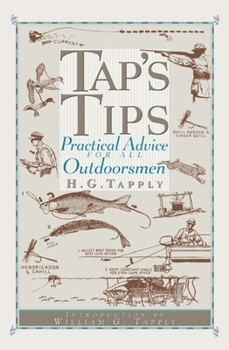Chasing the Dragon: A Veteran Journalist's Firsthand Account of the 1949 Chinese Revolution
Select Format
Select Condition 
Book Overview
In 1949 there seemed to be an insurmountable tide of communist successes. This book recalls life in China as the world's most populous nation succumbed to a regime that tore apart city after city,... This description may be from another edition of this product.
Format:Hardcover
Language:English
ISBN:1592282180
ISBN13:9781592282180
Release Date:January 2004
Publisher:Lyons Press
Length:256 Pages
Weight:1.55 lbs.
Dimensions:1.1" x 6.3" x 9.3"
Customer Reviews
5 ratings
A decent personal account of the Chinese Revolution.
Published by Thriftbooks.com User , 16 years ago
From a personal perspective, this is a nice addition to the literature on the Communist takeover of China. It is very informative about America's involvement in both the humanitarian efforts and the military failures of Chiang's regime. The American government pumped in 3.5 billion dollars (1948 dollars) into this failed Nationalist government. This government despite the American aid failed to win over the population and militarily defeat the Communists. In fact, the Communists were non corrupt, brave, and resourceful and this resulted in the defeat of the Nationalists. Rowan watched the corrupt nature of the Nationalist regime, and Chiang's military incompetence. He watched as humanitarian aid was stolen and sold. He watched as Nationalist soldiers threw away their weapons and went over to the enemy. It makes you wonder whether our efforts in Iraq will meet with the same fortune. A nice read of a personal account of the Chinese Revolution.
Who lost China?
Published by Thriftbooks.com User , 19 years ago
This book is a great personal account of the fall of China. The main characters: Mao Zedong, Zhou Enlai, Deng Xiaoping, Lin Biao, Chen Yi, Fu Zuoyi, Communists, and Chiang Kai-Shek, Madame Chiang, Chiang Ching-Kuo, Nationalists; Clare Chennault, Bill Gray, Henry Luce, President Truman, and many others were covered in great details. As a person who was born in Shanghai, I left Shanghai with my parents in May, 1949, I was educated in Taiwan under the Nationalists for 20+ years. I always wondered how Nationalist lost China to Communist? Nationalists got $3.8 bn from USA, weapons, millions of troops, yet could not win the war, truly amazing! During the battle of Xuzhou, Chiang lost 550,000 men and Communists captured 300,000 in just 65 days. Chiang never fought strategically. It is a lesson for all of us, General Myers.... and the ones in Iragi today. $$$ do not dicate the winners or losers in any war. Roy Rowan led a wonderful life covering these events. He gave an excellent talk at Shanghai Tiffin (lunch) club, New York city, on April 23, 2005.
Witnessing China's Revolutuon
Published by Thriftbooks.com User , 19 years ago
In "Chasing the Dragon," veteran journalist Roy Rowan relives his coverage of the final battles of the Chinese civil war and the victory of Mao Zedong's Communist army over Chiang Kai-shek's Nationalists. It was a climactic chapter in world history that launched the author's distinguished career. He reported on the bloody siege of Mukden, Manchuria, the million-man battle of Xuzhou and the fall of Shanghai, momentous events that few foreign correspondents covered. Though a young man, Rowan was already a seasoned China hand, having directed truck convoys for the China National Relief and Rehabilitation Administration, the regional counterpart of the United Nations Relief and Rehabilitation Administration. In that capacity, he had seen the corruption of the Nationalists, which later prompted President Truman to say, "Chiang Kai-shek's downfall was his own making. His generals surrendered the equipment we gave him to the Commies, who then used the arms and ammunition to destroy him." Rowan was not, in his words, "a do-gooder out to save the starving Chinese" but a man hoping to find "exciting stories to write about as a freelance journalist." His freelancing paid off. A picture story he sent to his literary agent in New York was published in Life, and the magazine hired him to cover the war. After the Communist takeover, Mao "slammed down the Bamboo Curtain," Rowan writes, "closing the vast land to all Americans but a few Communist sympathizers, just as his mentors in the Kremlin had done with the Iron Curtain." Rowan then moved the Time-Life bureau from Shanghai to Hong Kong. He went on to cover the Cold War in Europe, the Korean War and the Vietnam War. He returned to China in 1973 and visited several more times to report on the results of burgeoning capitalism there. This is a revealing book about stirring events that led to the rise of contemporary China. I highly recommenbd it. Norman Ritter, journalist and corporate communications consultant
Accolades
Published by Thriftbooks.com User , 19 years ago
This book has received great reviews from Smithsonian magazine, People magazine, and Time magazine. See my web site: www.royrowan.com
Interesting read from veteran journalist
Published by Thriftbooks.com User , 20 years ago
This firsthand account of the fall of China to the Communists is quite engaging. The first half of the book drags a bit, but it picks up as the Communists begins to encircle the Nationalists. The author retreats with the Nationalists Army, from Beijing to Shanghai, and it's always interesting to get the perspective of the loser. Much like the fall of Saigon, the author conveys the dichotomy of panic and denial as the enemy inevitably marches towards the city. The epilogue provided a satisfying conclusion as the author revisits his old haunts.






